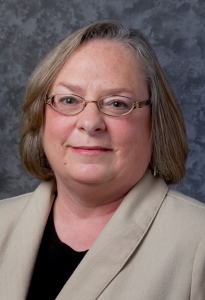
It was a busy week under the dome as joint conference committees of the House and Senate met to negotiate compromises between bills that have passed both chambers. The regular session came to an end on Friday and the House adjourned without voting on a budget. The legislature will reconvene the week of April 27 and will focus on outstanding matters like the budget and a potential revenue package.
It remains an incredible honor to represent our community in the Kansas House of Representatives. While the Legislature is in session, I do my best to stay in touch and keep you informed by email, and I spend countless hours every week helping my constituents solve problems. If I can be of service to you or anyone you know please call my office at 785-296-7371 or email me at [email protected].
Revenue numbers
As a result of the governor’s failed economic experiment, Kansas revenue is down another $11.2 million for March. The legislature will have to address the revenue shortfall before final adjournment, because the state cannot deficit spend. It is not clear how the problem will be solved. Past budget deficits have been filled by one-time revenue sources. Over the past year the budget has been short more than $320 million, and has been shored up by:
• Transferring $158.5 million from the State Highway Fund,
• Delaying $7.9 million in investments to the Kansas Employee Retirement System (KPERS),
• Cutting more than $51 million from this year’s K-12 budget
• Cutting more $16.2 million in cuts to Kansas Regents Institutions, which was enacted unilaterally by the governor
• Cutting $66.4 million worth of cuts to various state agencies, which was also enacted unilaterally by the governor.
These one-time revenue sources are not sustainable and are not a fiscally responsible use of state funds.
A chart provided by Kansas’ nonpartisan Legislative Research Department shows how Kansas has lost revenue throughout the 2015 fiscal year.
Still no budget
Each member of the House of Representatives was duly elected to represent their constituents, but the nature of this year’s budgeting process has not allowed most members of the House input.
The House adjourned its regular session without a budget bill ever reaching the House floor. Instead, majority members of the House Appropriations committee voted to go straight into negotiations with the Senate without having formal approval from the full House.
The budget that was being negotiated before the legislative break was not a balanced budget and it relied heavily on funding from tax increases. I will not vote for a budget that does not balance and does not prioritize the needs of working and middle class Kansas families.
KPERS bonding negotiated to $1 billion
This week the House and Senate negotiated a compromise to issue $1 billion of pension bonds from the Kansas Public Employee Retirement System (KPERS) fund.
The House had originally authorized the bonding of $1.5 billion, but after negotiations the approved amount was reduced to $1 billion. I voted no because the legislature has repeatedly been warned that bonding a portion of KPERS is a bad financial investment.
Investors are not buying bonds in the current economic climate so there is no guarantee the risk will pay off. The bonds, which are to be paid off over the next 30 years, will push the cost of KPERS onto future generations of Kansans.
Uber
The House passed legislation requiring drivers for ride sharing services like Uber to purchase commercial vehicle insurance. A driver’s personal insurance is void if they are using their vehicle for commercial purposes, and will not cover the cost of damages to vehicles or medical expenses in the event of an accident.
The legislation also requires Uber drivers to undergo background checks before being listed on the mobile application. I received hundreds of emails about this bill. I voted in favor of the bill because it protects consumers and preserves public safety. The legislation will now go the Senate for approval.
Governor signs gun bill
In a public ceremony this week, the governor signed into law legislation that revokes the permit requirement for carrying concealed firearms. Individuals will now legally be able to carry hidden, loaded guns in public places without the necessary training or background checks originally required by the permit process. I voted no on the bill because it endangers our communities by removing minimum public safety standards.
TANF
Both chambers of the legislature approved a bill this week that changes the way two social service programs Temporary Assistance for Needy Families (TANF) and Supplemental Nutrition Assistance Program (SNAP), are administered by the state.
The changes will make TANF and SNAP less accessible for Kansans who need assistance in a time when childhood poverty and homelessness is on the rise. I voted against this bill. It is not prudent to restrict one of the only lifelines available to combat poverty. Kansans who are receiving assistance have fallen on hard times and are using these programs as a means to merely make ends meet.
